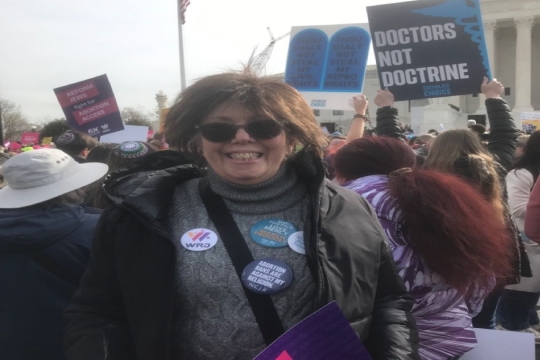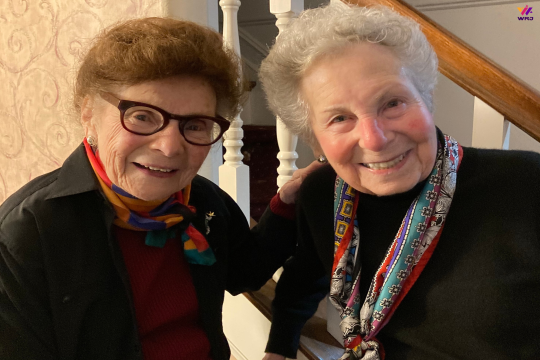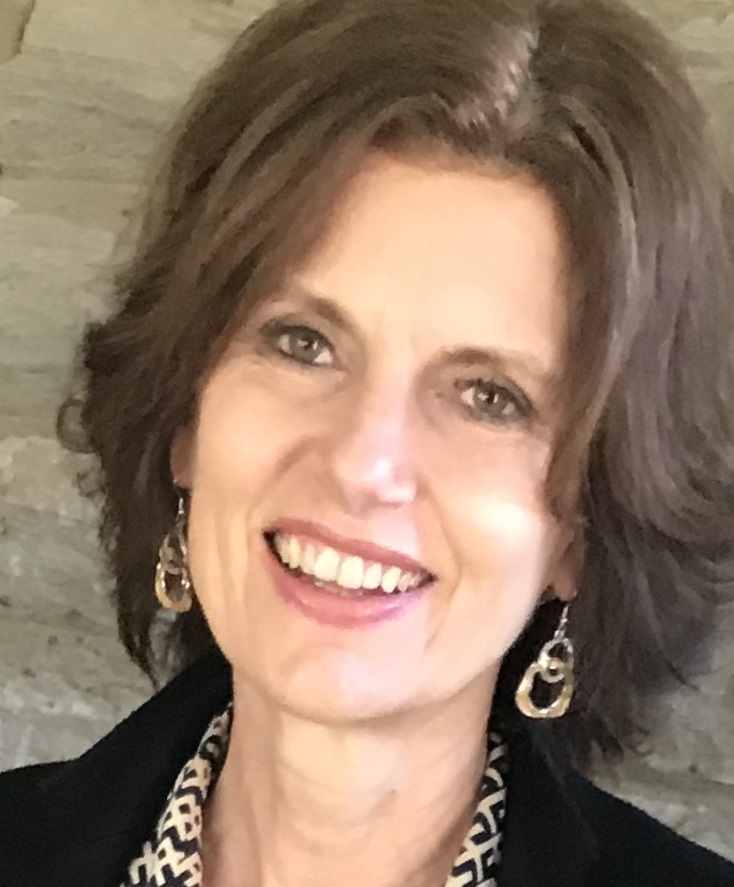
Women of Reform Judaism, under the umbrella of World Union of Progressive Judaism, addressed the international community in collaboration with Ani Zonneveld, President of Muslims for Progressive Values, and Martha Gallahue, the United Nations Representative of United Religions Initiative at the 68th United Nations Civil Society Conference held on August 26-28, 2019. Each year, the United Nations holds a conference for representatives of non-governmental organizations (NGOs) for the purpose of furthering the mission of the United Nations. This year’s theme was based on the sustainable development goal (SDG) eleven, “building inclusive and sustainable cities and communities.”
The workshop proposal that was submitted, titled “Progressive Voices of Faith: An Interfaith and Intergenerational Dialogue,” qualified us to present at the conference. As Andrew Keene, the Youth UN Representative of WUPJ pointed out in his article, “Our Progressive Values at the United Nations Civil Society Conference,” the three goals of this workshop were to educate the international community on progressive values of major religions, demonstrate the necessity for progressive communities to partner together against hate, and show how progressive communities can be catalysts for the sustainable development goals. Together, the panel was able to convey the primary tenets of our individual beliefs in a way that was inspiring through song, slides, and a robust question and answer session following our panel discussion. Below are the core values we shared:
- All agree in the belief that religion must continuously evolve to be relevant
- All agree that social justice requires action
- All adopt a policy of inclusiveness and acceptance and invite others to partake in its communities
- All identify with progressive political and social agendas
- All agree we must engage youth in a meaningful way
- All agree we have a moral obligation to the “other”
We each highlighted how our organizations actively develop and participate in interreligious and intergroup activities. The interfaith community has the capacity to build one of the strongest avenues for peace. We have the power to unify, to strengthen the bonds of community, and to promote peaceful societies. Based on our shared value of tikkun olam, repairing the world, it is necessary for progressive communities to partner against hate and to advocate for religious freedom. Disagreements over some issues should not lead to conflict, rather, each need to focus on how they can work together on those issues about which they agree.
As it so often happens, while our mandate was to educate the attendees, I too was enlightened by my fellow panelists. From Ani I learned at the core of Muslims For Progressive Values work is to stimulate critical thinking of sacred texts and to advocate for human rights, social justice and inclusion. Sound familiar? It is very similar to Torah study in our reform congregations and we also share the same values in Reform Judaism. From Martha I learned about humanism, a philosophy which shows a primary or overriding concern with the needs and abilities of human beings though not subscribing to any religion or dogma. United Religions Initiative, the NGO that Martha represents, is inclusive of all religions and those who do not believe.
I had an “aha” moment during the panel discussion - if our workshop was to awaken others to the genius of our faith traditions, acknowledging our diversity while celebrating our commonalities in the name of religious freedom, it needs to include non-believers as well. As Heiner Bielefedtl, The UN special rapporteur on freedom of religion or belief stated “The human right to freedom of religion or belief does not protect religious traditions per se, but instead facilitates the free search and development of faith-related identities of human beings, as individuals and in community with others.”
Advocates of religious freedom protect the right to believe or not believe, to change one's religion if one desires, and to speak and act on those beliefs. Religious freedom protects believers, not beliefs.
Through both interfaith and intergroup partnerships, we can be catalysts for the United Nations Sustainable Development Goals. In the United States, we can provide a unified message to our elected officials demanding laws and ordinances based on compassion and forgiveness and at the UN, our combined voices can influence member states.
WRJ has a history of interfaith partnerships including the Neighbor to Neighbor initiative featured in the July 26 Weekly Digest Strategies for Sisterhood Success Interfaith Women’s Circles which can be replicated. The reality is that in the search for meaning, purpose, or community, to love and be loved is universal. Once we understand this truth, we can build sustainable cities and communities with our message of inclusivity.
Leslie Brier is a WRJ representative to the United Nations. She also represents World Union for Progressive Judaism in this capacity.
Related Posts

Andrea Stillman: A WRJ Leadership Spotlight


